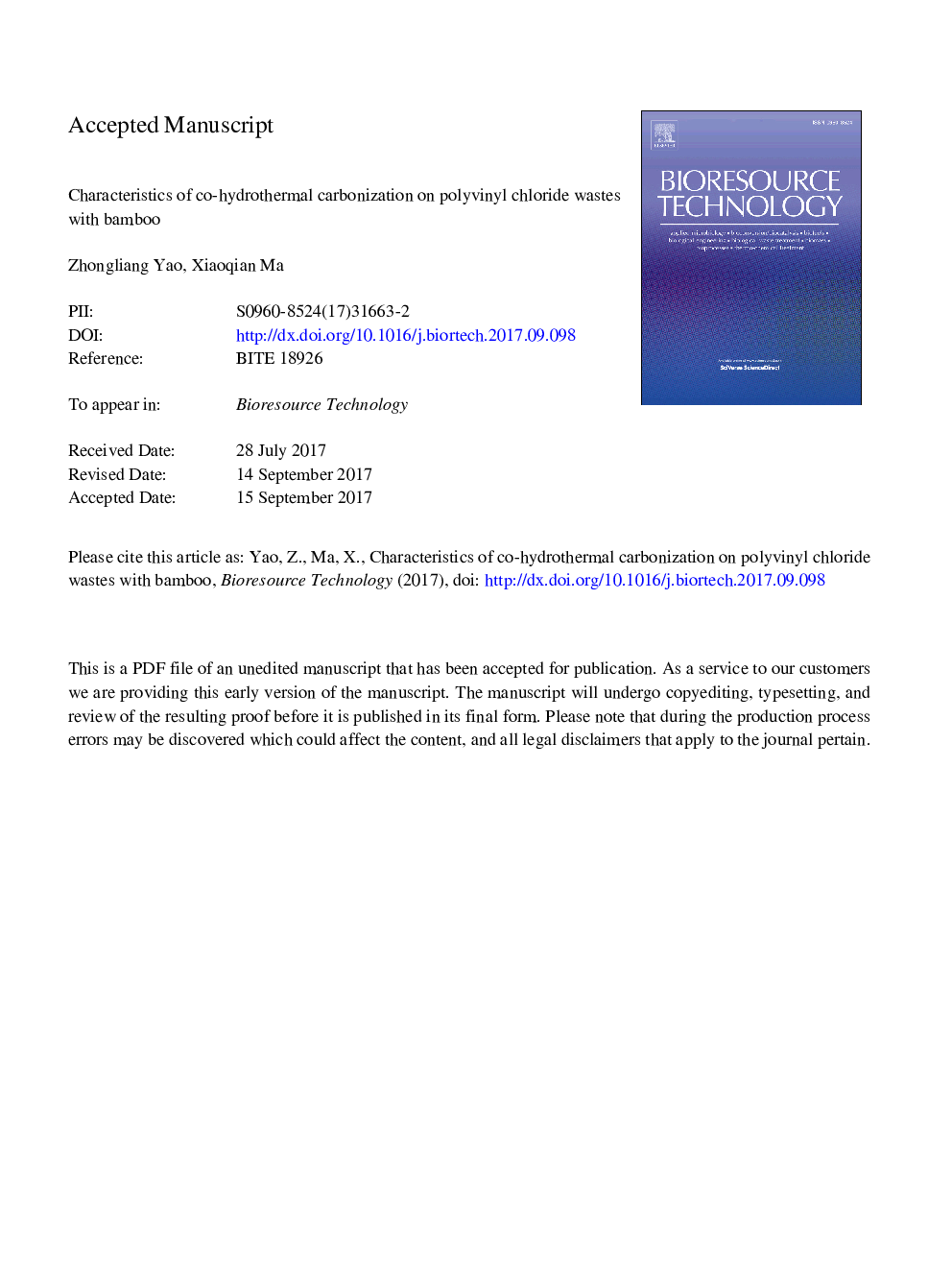| Article ID | Journal | Published Year | Pages | File Type |
|---|---|---|---|---|
| 4996652 | Bioresource Technology | 2018 | 38 Pages |
Abstract
The PVC waste and bamboo were treated by co-hydrothermal carbonization (co-HTC) at three different temperatures. The inorganic-Cl could be removed from the carbon rich solid products (hydrochar) in the form of HCl via hydrolysis, elimination, substitution and aromatization. Due to the high carbon content, the hydrochar could be applied as premium fuel. Bamboo had a synergistic effect on dechlorination with PVC in the HTC process. The bamboo could accelerate the HTC dechlorination of PVC at 200 °C because it strengthened the substitution of Cl with OH. While at 230 and 260 °C, the existence of bamboo hindered the dechlorination of PVC in HTC. Thermogravimetric analysis showed the combustion performance of hydrochar was better than the raw samples at 200 °C. Owing to the low chlorine content, low ignition temperature and the superior combustion performance, the M-260 can be adopted as alternative fuels for coal.
Keywords
Related Topics
Physical Sciences and Engineering
Chemical Engineering
Process Chemistry and Technology
Authors
Zhongliang Yao, Xiaoqian Ma,
